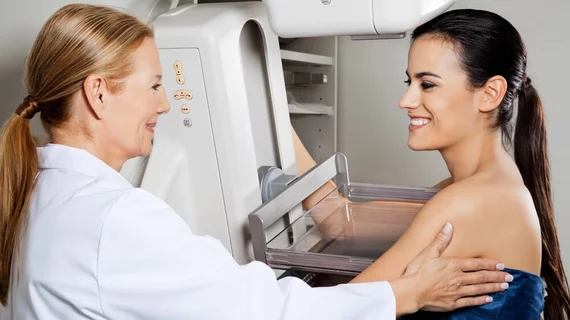Washington DC enacts breast density reporting bill, requires insurance coverage of additional exams
The D.C. Council has enacted Washington D.C.’s breast density reporting legislation, meaning that all women must now be informed after undergoing a mammogram if they have dense breast tissue.
The legislation, officially known as the Breast Density Screening and Notification Act of 2018, also requires insurance coverage for additional screenings women with dense breast tissue may need after receiving the news. This sets Washington D.C.’s bill apart from the laws signed in many other U.S. states.
“Women with dense tissue need extra screening to catch earlier, more curable breast cancers but they cannot get the screening they need if they are not aware that they have dense tissue in the first place,” Vincent C. Gray, the member of the D.C. Council who first introduced the bill, said in a prepared statement from the Brem Foundation. “That is why I introduced the Breast Density and Screening Notification Act of 2018, which requires health care facilities to include information about breast density in federally required mammography reports. I am proud of this bill as it will empower our residents to take control of their health care and undoubtedly save lives.”
“Breast density is a real and strong risk factor for developing breast cancer,” Andrea Wolf, executive director of the Brem Foundation, said in the same statement. “This legislation will empower women, save lives, and bring the D.C. community one step closer to a day when D.C. no longer claims the highest death rate from breast cancer.”
A federal breast density reporting requirement went into effect when President Trump signed a federal funding bill on Feb. 15. Joseph J. Cappello, executive director of both Are You Dense, Inc. and Are You Dense Advocacy, Inc., noted in an interview with Radiology Business that states can still make their own legislation stronger than the federal requirement—but it can’t be made weaker.

